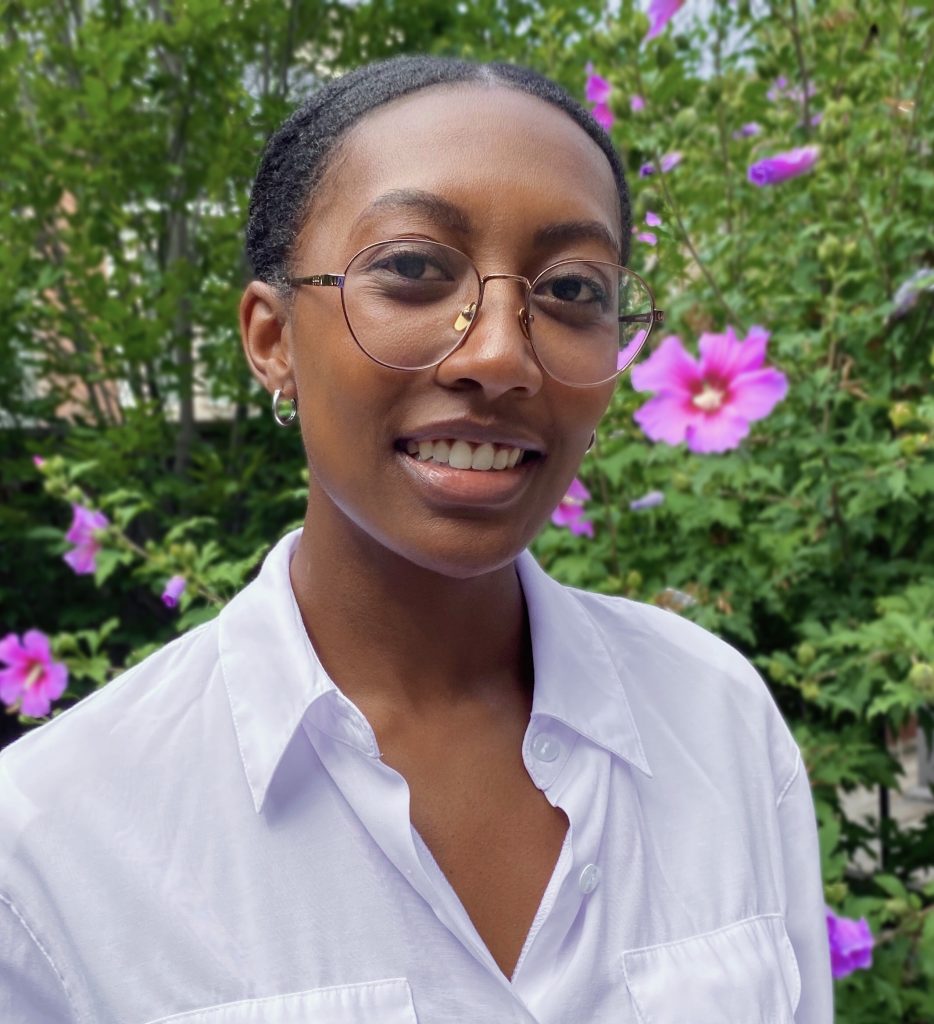When all Roads Lead to Public Health: Tyla Thomas -Jacques’ Journey
September 4/2020
by Françoise Makanda, Communications Officer at DLSPH
The end of Tyla Thomas-Jacques’ graduate journey came online — an unfitting conclusion to two years at DLSPH.
“It doesn’t seem like there’s any finale,” says Thomas-Jacques who earned her Master of Public Health in Public Health Promotion. “It was very anticlimactic but I took that time to reflect and acknowledge the accomplishment of concluding a graduate degree.”
She was destined for public health, having ranked first in her MPH application pool in 2018, and then last year earning a fellowship for Black and Indigenous students through U of T’s School of Graduate Studies.
Now, Thomas-Jacques is in research at the Women’s College Hospital’s Institute for Health Systems Solution and Virtual Care, where she assesses the benefits of virtual care. Given the pivot to rapid healthcare virtualization during the pandemic, researchers like herself are studying whether the tactic was equally accessible for all.

Alumna Tyla Thomas-Jacques
“We’re specifically looking at the health equity aspect of that rapid virtualization because, as you can imagine, not every patient will have access to the technology, the Internet and all these different things that are required to connect to a physician,” says Thomas-Jacques.
Thomas-Jacques came to public health from undergraduate studies in health sciences although sceptical about what it would mean for her. After taking one class on social determinants of health, she never looked back.
As an undergrad at Western University, Thomas-Jacques completed an honours specialization in Health Promotion in the Health Sciences program all while presiding over the school’s chapter of Partners in Health Canada. She also volunteered with London’s Pillar Non-Profit network to nurture her interest in community engagement and worked for a local public health unit after graduating.
She decided to pursue a Master’s at DLSPH to explore program evaluation and development, drawn to the school’s focus on social justice and equity. Still, the lack of Black students hasn’t been easy.
“Not only are you here, just like every other person to learn but then you also have to be thinking about how the institution is functioning,” says Thomas-Jacques. “You have to spend time and energy holding the institution accountable for anti-Black racism and that’s just quite frankly not what you are there for.”
Thomas-Jacques participated in writing open letters to the school. She has witnessed a heavy burden on racialized people.
“There are so few faculty members of colour. They not only have to be doing their own research but they are being tapped on the shoulder to consult on so many things because it’s just so few people with that expertise,” she says. “I’m very appreciative, but it is a burden of their time to be mentoring other students of color who maybe have never had the opportunity to have mentors of color or mentors who have similar experiences to them. That’s a lot of weight on one person’s shoulders.”
Despite these challenges, she feels fortunate to be involved with her cohort, the very same one that graduated online this year. “We were able to enrich each other’s experiences and education by the diverse backgrounds that people had not only in terms of racial backgrounds, but different work experiences in our communities, working in government or working at different levels.”
For students hoping to make the most of the program, Thomas-Jacques advises new students to always use their network and get involved. She took part in the DLSPH Student-Led conference in their evaluation committee in her first year, working alongside second-year students. She was a facilitator with the Faculty of Medicine’s IMAGINE Student-led Clinic, working with the Health Promotion team to facilitate sessions at the Women’s Residence Toronto. She was also part of DLSPH Prof. Ananya Banerjee’s Anti-Oppression working group.
Thomas-Jacques remains grateful that she has had two practicum placements that allowed her to expand her knowledge. She was selective with her placements. For her second placement at the Ministry of Health, she applied her knowledge on social determinants of health and health equity to understand gaps in population-level programs and interventions.
She also advises stepping out of one’s domain: “I think when you’re in the bubble of Social and Behavioral Health Sciences, it’s interesting to see how valuable that knowledge is,” she says. “It really is being able to draw out gaps that may be missing for proposed policies or population programs.”
As for future applicants, Thomas-Jacques advises prospective students to find ways to apply public health in their learnings, inside and outside of academia. She believes this has been important to her academic success.
“Grades are important but highlight what things you’ve been involved with,” she says. “Even work experience seems to play a part in your application. So, it’s demonstrating across those different areas that you are dedicated to public health and to equity and all the values that are instilled in health promotion and public health competencies for Canada.”